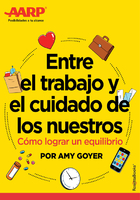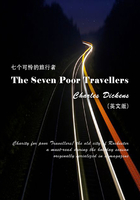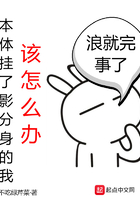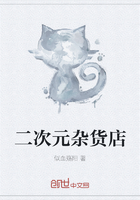It's Not My Job, It's Not My Fault
There are two kinds of people in the world, those
who make things happen and those who complain
about what's happening.
How many times in an average week do you hear someone utter these sentiments? “It's not my job! It was not my fault. It's just the way I am. It's just the way it is. What can I do about it? It is bigger than me.”
If stepping up is about taking responsibility for change instead of waiting for others to act, you might ask, “What's in it for me to step up and take responsibility?” In this chapter, I make the case that you will be happier, more successful, and ultimately have more influence if you banish such sentiments from your thinking. People who say, “It is my job, some of it is my doing, I can be different, and I don't accept things the way they are,” are simply happier and more successful than those who focus outside themselves.
Locus of Control: Are You a Victim or an Initiator?
Locus of control is a concept in social psychology that refers to how much individuals believe they can control events that affect them. The concept was first developed by Julian Rotter in 1954 and has become an important focus in the study of personality. Locus (a Latin word meaning place, location, or situation) can either be internal or external. In the 1960s, Rotter investigated the implications of our tendency to attribute successes and failure either to internal forces (those we have control over) or to external forces (those outside of our influence). We humans fall into one of two camps: Internals, who do things, and Externals, who have things happen to them. Individuals with a high internal locus of control believe that events result primarily from their own behavior and actions. I call these people initiators, because they believe they mostly make their own destiny. Those with an external locus of control believe that powerful others, fate, or chance primarily determine events. These people I call victims, because they feel that life mostly is done to them rather than through them. Research shows that external locus of control (victim thinking) is linked to greater stress and a greater tendency toward clinical depression. Initiators—people who believe that their actions influence reality—on the other hand have been shown to be both more successful and happier.
Organizations are also a lot healthier when filled with people who are initiators rather than victims. Imagine for a moment how people with an external versus an internal locus of control behave within an organization, community, or society. People with an external locus, or victims, will focus on waiting for someone else or something else to determine an organization's destiny. The words they and you will be the most common start of every sentence. The focus of they could be the marketplace, the chief executive, the managers, the competitors, or the economy. People will say, “Things would be better around here if the CEO would do this,” “My results would be better if the market would just pick up,” and “Service would improve if the other departments would only cooperate.” When people talk about their experiences at work, victims will likely see it as someone else's responsibility to make them happy. They will say, “If I had a nicer boss, a better job, if I had gotten that promotion last year, then I'd be happy at work.” Victims are also less likely to take initiative because they feel outcomes are not in their hands anyway. An organization filled with victims will generally have low morale, have more risk-averse behavior, and find it difficult to implement change.
People with victim thinking will look at society and say the government should do something about poverty, crime, and the environment. They will throw up their hands at the largest problems we face saying, “What can I, or even we, do about those things?” They may let leaders off the hook, believing that some things simply cannot be fixed because, “It's just the way it is.”
Now imagine how an organization or society (or your life) would be different if filled with initiators, people with a strong internal locus of control. When unhappy on their jobs, they would be less likely to blame others and more likely to look inside themselves for answers. If they want to develop their careers, they will ask for what they want instead of complaining that they aren't getting it. Rather than acting like victims, they will take initiative to solve problems. They will probably be less likely to point fingers at the other departments or the marketplace when things go poorly and instead look inside to see how they can change or adapt to the environment. The same can be said within a society. Initiators will be less likely to point the finger at someone else to change things or to hang their head in resignation at the problems we face.
Victim Society?
The truth of course is that most of us sit somewhere between these two extremes. We sometimes act like victims pointing outward, and we sometimes act like initiators looking within. Even those of us who tend to be initiators can act like victims sometimes, and those of us who tend to feel like victims have moments when we see the potential to change things. There are other times when we aren't so much like victims as we simply accept the status quo with a shrug. Victim thinking and scores on locus of control are not identical, but what concerns me is that victim thinking is becoming more pervasive.
After analyzing the results of studies using Rotter's Scale on Locus of Control with young people from 1960 to 2002, Jean Twenge, a prolific researcher at San Diego State University, found a disturbing trend. In a blog post January 26, 2010, on the Psychology Today website (www.psychologytoday.com), Peter Gray reported her findings: “Average scores shifted dramatically…for college students—away from the Internal toward the External end of the scale. In fact, the shift was so great that the average young person in 2002 was more external than were 80 percent of young people in the 1960s. The rise in Externality on Rotter's scale over the 42-year period showed the same linear trend as did the rise in depression and anxiety.”
No wonder Time magazine ran a cover story in the middle of the last decade with the title “Victim Nation.”
This victim thinking can take on comical proportions. Remember a few years ago when someone sued McDonald's—and won the case—because she spilled her hot coffee, causing a burn? Hence, coffee cups are now emblazoned with the words, WARNING HOT! Give me a break. Of course coffee is hot, and we can't blame other people every time something goes wrong.
The McDonald's incident would be a mere diversion if this tendency to blame others for our problems were not so common. Some teacher friends of mine told me about another seismic shift. In a previous generation if little Johnny was having problems at school, parents most likely would arrive at the schoolhouse saying, “What is Johnny doing?” Johnny probably got reamed out by his parents about how he needed to step up. Today, parents are just as likely to come to the school to defend their child, wondering what is wrong with the teachers, the school, and the system that keeps Johnny from reaching his potential.
Put aside for a moment whether it is more Johnny or the system that is to blame, and ask this question instead: which will benefit Johnny more in his adult life, working on his part of the problem, or learning from his parents that when things go wrong it is someone else's fault? Ask yourself what will help you more, focusing on what you can change or on the things outside your control that limit you?
Are You an Innie or an Outie?
The consequence of having a seismic shift towards victim thinking means more of us feel that the future is not in our hands but in the hands of forces outside ourselves. And since internal locus of control is positively correlated with happiness, success, and initiative while external locus of control is related to anxiety and depression, it's pretty clear that most organizations and society as a whole would be better off if more of us believed we could change things. If we are going to step up, we first have to have a mind shift, from one in which we believe that things are controlled out there to the idea that things are in our control.
Of course, the truth about the world is somewhere between these two extremes. External events do determine some amount of our success and happiness. Your boss may be a jerk and so may be your husband. Some people do get all the breaks. Many factors outside your personal control do drive the great problems of our age. Global warming did not happen just because you took your gas guzzler on a trip that you did not need to take this morning. But the point is that when we focus on what we can change, rather than how the rest of the world must change, we feel more in control. Besides—and this really matters—you are the only one you can control anyway!
As my friend Matt pointed out when he had a total jerk for a boss, “I spent months fighting the fact that she had a personality disorder, but everything changed when I started asking myself how I had to adapt to work with a boss like her.”
In every situation we may only be 10 percent responsible for what is happening, but when we focus on how we can change our part, our perspective changes.
Here is a great example of what happens when you are an innie. A client of mine, a telecommunications company in the eastern United States, has many of its retail wireless stores in poor retail spaces with leases that cannot be broken. The managers of those stores had every reason to blame the external environment for their poor results compared with the newer stores in better locations. Most of the managers moaned about their bad luck and put in their time waiting to snag an assignment at a better location. But one manager focused on the 10 percent he could influence.
He challenged his people not to act like victims but to ask what they could do in spite of the constraints of a poor location. He engaged his employees in going out to find the customers rather than staying in the stores waiting for customers to arrive. He told his staff, “We can't do anything about our location but we can decide not to be victims.” They brainstormed ways to be successful in spite of the location by taking personal initiative. They got involved in the community and met the customers where they were located. They started volunteering as a team at local events and advertising in the process. They even started changing tires for people in parking lots and doing random acts of kindness. They gave out cards in lobbies of local office buildings. In the end, their results beat out most of the stores with much better locations, in large part because they took responsibility for what they could fix rather than focus on the external forces that were out of their control.
Is Your Mindset Fixed or Flexible?
Here is another bit of research to add into the mix. You see it is not just how we see the world but how we see ourselves that influences whether we step up. Research on the concept of mindset by Carol Dweck, a professor at Stanford University, shows that some of us have a flexible mindset while others have a fixed mindset, and this mindset may help explain why some of us are more successful. She discovered that those of us with a fixed mindset tend to think of ourselves as having an unchanging set of talents and gifts, and those with a flexible mindset tend to think that we can grow and learn new skills.
In her fascinating research with elementary-age students, Dweck discovered that when children were praised for their effort, regardless of how difficult the task or how well they performed objectively, they would take on harder tasks in order to improve. Those praised for their natural aptitude tended to take on easier tests after being praised. As Po Bronson reported in the February 11, 2007 edition of New York magazine, the researchers in one study took one child at a time out of a classroom and gave the child a nonverbal IQ test consisting of a series of puzzles easy enough that all the children would do fairly well. Once the child finished, the researchers gave each student the score and a single line of praise. Randomly divided into groups, some were told, “You must be smart at this.” Other students were told, “You must have worked really hard.”
Then the students were given a choice of test for the second round. One choice was a more difficult test, but the researchers told the kids that they'd learn a lot from attempting the puzzles. The other choice, Dweck's team explained, was an easy test, just like the first. Of those praised for their effort, 90 percent chose the harder set of puzzles. Of those praised for their intelligence, a majority chose the easy test. The “smart” kids took the easy way out. It was almost as if those praised for being smart did not want to take any risk of blowing that label, and those praised for their effort kept taking on more risk, believing they could stretch.
This research, described in detail in Dweck's book Mindset: The New Psychology of Success (Ballantine, 2007), has a great deal of consequence in an organization or a school. If we want people to step up and change things, we need to make sure we praise them for the effort, not just the outcome. When people believe that effort, rather than some set of innate skills or talents, leads to success, they step up and try harder. Guess what happens when we think of ourselves as people who can develop new sets of skills, talents, and aptitudes? We take on the risks involved in doing so. (Read more at Dweck's website, www.mindsetonline.com.)
My daughter, Lena, is an art teacher in the public school system in Chicago. I find her career choice ironic as neither her mother nor I have any seeming aptitude in this area. In fact, since I was very young, I assumed that I had no artistic ability. Given this background, I was fascinated by research Dweck references where students who believe they have little or no artistic talent can be transformed in one week to paint reasonably good paintings. She says the students go from producing paintings in the first class that look like those of first graders to creating paintings that seem quite good to the untrained eye.
As we are with locus of control, most of us are somewhere between the mindset extremes. At times, we get in a fixed mindset, believing that our talents, skills, and aptitudes are frozen at a certain level. To be sure, there are limits to how much we can grow. I love basketball, but I won't ever be Michael Jordan. Still, most of us limit our growth by falling back on the notion that “this is just the way I am.”
When we combine a fixed mindset with victim thinking, chances are pretty good that we won't step up. Locus of control is about how we see the world, and mindset is about how we see ourselves. If we believe we can't change, then why step up and try to improve ourselves? If we believe that external events shape the future, why step up and try to initiate change around you?
Changing Your Brain by Stepping Up
It is not entirely clear to me how we change from being victims to being initiators. But I have a strong suspicion that, just as with other activities involving the mind, practice makes perfect. As Alvaro Pascual Leone of Harvard, one of the world's foremost neuroscientists, told me, “From a brain perspective, every time we do something we are more likely to do it again, and every time we stop ourselves from doing something we are less likely to do it again.” In fact, we now know that the human brain evolves and changes during our lifetimes based on our experiences.
Every time we act like a victim or give in to the fixed mindset about ourselves, we reinforce that behavior and thinking, and every time we decide to step up and take responsibility, we increase the chances that we will do so in the future. It is quite possible that by stepping up and taking responsibility we are creating new neuro-connections, literally changing our brains in the process!
Are You Going to Be a Victim or an Actor?
Perhaps we regularly should ask ourselves these questions: Am I going to be a victim or an actor in the various scripts I find myself in today? Will I ask first what I can do to make things better or be content to blame others? Will I accept that I am simply not good at this or choose to believe that hard work and effort will reward me with new skills I did not even know I had? Stepping up is about seeing yourself and others as capable of initiating change. It is about believing that things can be better if we put our minds to it and that reality is mostly of our own making.
What's more, those who say, “It is my job, it was my doing, and let's do what we can to start fixing this,” are also the kind of people who tend to get ahead in organizations. Being a person who says, “It is my job, let me do what I can, let's get out and change things,” gets you promoted and noticed; it's that simple. It may even improve your relationships and help you make a bigger difference in the world.
Ways to Step Up
image Banish victim thinking and acting from your life. Every time you are tempted to think that something has been done to you, ask what you can do with what you have. Outside forces affect our destiny, but we cannot control these things. Choose to focus on what you can control.
image Challenge fixed mindset thinking. Finish this sentence: I am not ____. You might say you are not romantic, a people person, a good parent, assertive, and so on. Then, turn your statement around: With effort I can be more romantic, more a people person, more assertive, and so on. Choose not to give in to a fixed mindset about yourself. Do the same with others and your organization. Instead of saying they will never change, they will never be different, choose to shift your thinking towards what might change.
image Help your children focus on how they can adapt rather than blame. Sure, they will meet people who will sabotage their success, but focusing on how they can adapt will help them achieve greater success, whatever circumstances they find themselves in.















